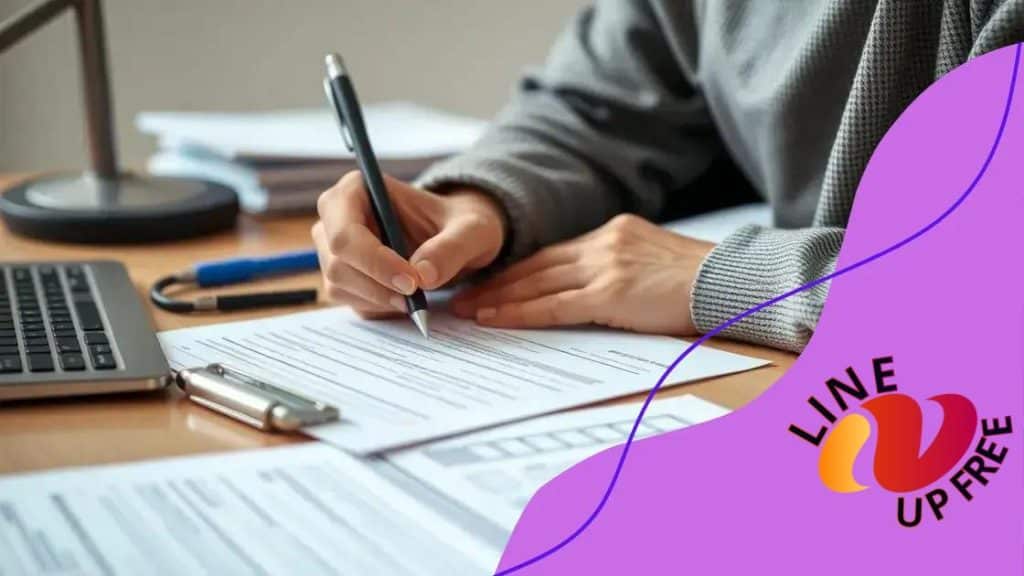How to navigate government benefits for the unemployed

Anúncios
To navigate government benefits for the unemployed effectively, understand eligibility criteria, maximize available resources, and avoid common pitfalls such as incomplete documentation and missed deadlines.
How to navigate government benefits for the unemployed can be tricky, especially in challenging times. But don’t worry! We’ll break down the steps to help you access the support you deserve.
Anúncios
Understanding unemployment benefits
Understanding unemployment benefits is essential for anyone facing job loss. These benefits are designed to provide temporary financial assistance to those who are unemployed through no fault of their own. Knowing how to access and navigate these programs can be highly beneficial.
Eligibility requirements often vary by state, but there are some common criteria. Many states require you to have worked a certain number of hours or earned a specific income during a base period. Documentation is also crucial. You may need to provide information such as your Social Security number, employment history, and reasons for unemployment.
Types of benefits available
Unemployment benefits can come in various forms, depending on your situation.
Anúncios
- Regular unemployment insurance: This is the most common type and provides a weekly benefit amount.
- Extended benefits: These are available during periods of high unemployment and can provide additional weeks of assistance.
- Pandemic Unemployment Assistance: Available for those not traditionally covered, such as freelancers or gig workers.
Many people may wonder how to apply for these benefits. Each state has its own application process, which can often be completed online. It’s important to start your application as soon as you lose your job to avoid delays. Remember to check your state’s specific guidelines for the most accurate information.
After applying, you might receive updates on your claim status. Be sure to monitor your email and online account for any requests for additional information.Maintaining eligibility is also crucial. Most states require you to actively look for work during your unemployment. This often includes documenting your job search efforts.
Common challenges with unemployment benefits
Navigating the unemployment benefits system can come with its own set of challenges. Delays in processing claims are common, leading to frustration for many. Understanding the reasons behind these delays can help you better prepare and manage your expectations. Sometimes applicants fail to meet all requirements, leading to denials, so it’s essential to read through the guidelines carefully.
Eligibility criteria for benefits
Eligibility criteria for benefits can be confusing, but understanding them is vital to receiving the help you need. Each state has its own specific rules, but some general requirements often apply across the board. It’s important to review these guidelines carefully to ensure you meet the necessary conditions.
One common requirement is that you must have worked a minimum number of hours or earned a specific income during a base period. This is usually the first four of the last five completed calendar quarters. Your earnings must also exceed a certain threshold to qualify.
Additional factors for eligibility
Aside from work history, there are other factors to consider. You generally need to be unemployed through no fault of your own. This means you might not qualify if you left your job voluntarily without a valid reason or were dismissed for misconduct. Additionally, you are expected to be actively seeking work while receiving benefits.
- Residency requirements: You must be a resident of the state in which you are applying for benefits.
- Availability for work: Being ready and willing to accept suitable employment is also necessary.
- Record of job search: Some states require proof or documentation of your job search activities.
It’s crucial to gather all necessary documentation when applying. This may include your Social Security number, a detailed employment history, and any other relevant information. Failing to provide complete and accurate information can result in delays or denial of benefits.
Understanding these eligibility criteria can help streamline your application process and reduce stress during an already challenging time. Always check with your local unemployment office for the most accurate and up-to-date information regarding your state’s eligibility requirements.
Application process for government assistance
 The application process for government assistance can often seem daunting, but breaking it down into clear steps can make it easier. Knowing how to navigate this process is essential for ensuring you receive the support you need during tough times. Most applications can be completed online, simplifying the process for many people.
The application process for government assistance can often seem daunting, but breaking it down into clear steps can make it easier. Knowing how to navigate this process is essential for ensuring you receive the support you need during tough times. Most applications can be completed online, simplifying the process for many people.
To begin, first, ensure you meet the eligibility criteria for the benefits you are applying for. Gather all necessary documentation ahead of time to avoid delays. Common documents required include your Social Security number, employment history, and proof of income.
Steps to apply for government assistance
Following a straightforward approach can help streamline your application. Here are the key steps to follow:
- 1. Visit the official website: Start by going to your state’s official unemployment or government assistance website. Look for the section on applying for benefits.
- 2. Create an account: Most states require you to create an account to start the application. This will help with tracking your application status later on.
- 3. Complete the application: Fill out the application carefully. Provide all required information to ensure it is processed smoothly.
- 4. Submit your documentation: Along with your application, be prepared to submit any necessary documents. Upload or send them as directed.
After submission, it’s essential to monitor your application status. Many states provide online portals where you can check updates. If additional information is needed, respond promptly to any requests. This will help avoid any delays in receiving your benefits.
Additionally, if your application is denied, don’t hesitate to appeal. Understanding your rights and the appeal process can significantly impact your chances of getting approved. Always keep a copy of your application and any communication for your records, as this can be helpful if you need to follow up.
Tips for maximizing your benefits
Maximizing your benefits can significantly ease financial stress during unemployment. It’s essential to know how to get the most out of your government assistance. Simple strategies can help ensure you receive the total amount you are entitled to.
First, always stay informed about your local unemployment benefits. Each state has different programs and benefits that may become available during times of economic hardship. Regularly check your state’s unemployment website for updates on potential extensions or additional programs.
Utilize available resources
Take advantage of resources that can help you make informed decisions. Many states offer workshops or online webinars about navigating unemployment benefits. Participating in these programs can provide you with valuable information and tips.
- 1. Document your job search: Keep a detailed log of your job applications, interviews, and networking efforts. This may be required by your state as part of your eligibility.
- 2. Apply for other assistance programs: Don’t limit yourself to unemployment benefits. Look into supplementary programs such as food assistance, housing assistance, or utility assistance that can provide additional support.
- 3. Stay in contact with your case worker: If you have a case worker, maintain open communication. They can provide advice tailored to your situation and inform you about changes that could affect your benefits.
Additionally, familiarize yourself with the deadlines for filing claims and submitting required documentation. Missing deadlines can result in delays or denial of benefits, which can put you in a tougher position. Always aim to submit documents well before the due date.
Moreover, if you have questions or need clarification, don’t hesitate to reach out to your local unemployment office. They are there to assist you and can help clear up any confusion you may have regarding your benefits.
Common pitfalls to avoid
Navigating the process of applying for unemployment benefits can be tricky, and there are several common pitfalls that applicants should be aware of. Avoiding these mistakes can help ensure that your application is successful and that you receive the benefits you need.
One frequent mistake is failing to provide complete information on your application. Incomplete applications can lead to delays or even denied claims. Always double-check your application to ensure all sections are filled out correctly.
Documentation errors
Providing the required documentation is crucial. Failure to submit necessary documents, such as proof of employment or income, can hinder your claim. Always check the specific requirements from your state’s unemployment office. Missing documentation may require you to reapply, which can take extra time.
- 1. Not understanding eligibility criteria: Many applicants mistakenly believe they qualify without fully knowing the requirements. This can lead to disappointment if their applications are denied.
- 2. Ignoring deadlines: Every state has its own deadlines for applications and submissions. Missing these can result in losing your benefits.
- 3. Failing to maintain a job search: Most states require you to actively look for work while receiving benefits. Not keeping track of your job search efforts could jeopardize your eligibility.
Avoiding communication issues is also important. Not responding promptly to requests from your unemployment office can delay your claim. Be sure to check your email and notifications regularly.
Furthermore, if your application is denied, don’t be discouraged. Understanding the appeals process is vital. Many people lose out simply because they fail to appeal or don’t know how to do so. Taking the time to learn about your rights can make a significant difference.
FAQ – Frequently Asked Questions about Navigating Government Benefits for the Unemployed
What documents do I need to apply for unemployment benefits?
You’ll typically need your Social Security number, proof of employment, and any income documentation to complete your application.
How can I ensure my unemployment application is successful?
To improve your chances, ensure your application is complete and accurate, submit all required documents, and meet all deadlines.
What should I do if my unemployment application is denied?
If your application is denied, you can appeal the decision. Review the denial notice for steps on how to file an appeal.
Are there additional resources available to help with unemployment benefits?
Yes, many states offer workshops, webinars, and online resources to help you understand and navigate the unemployment benefits process.





